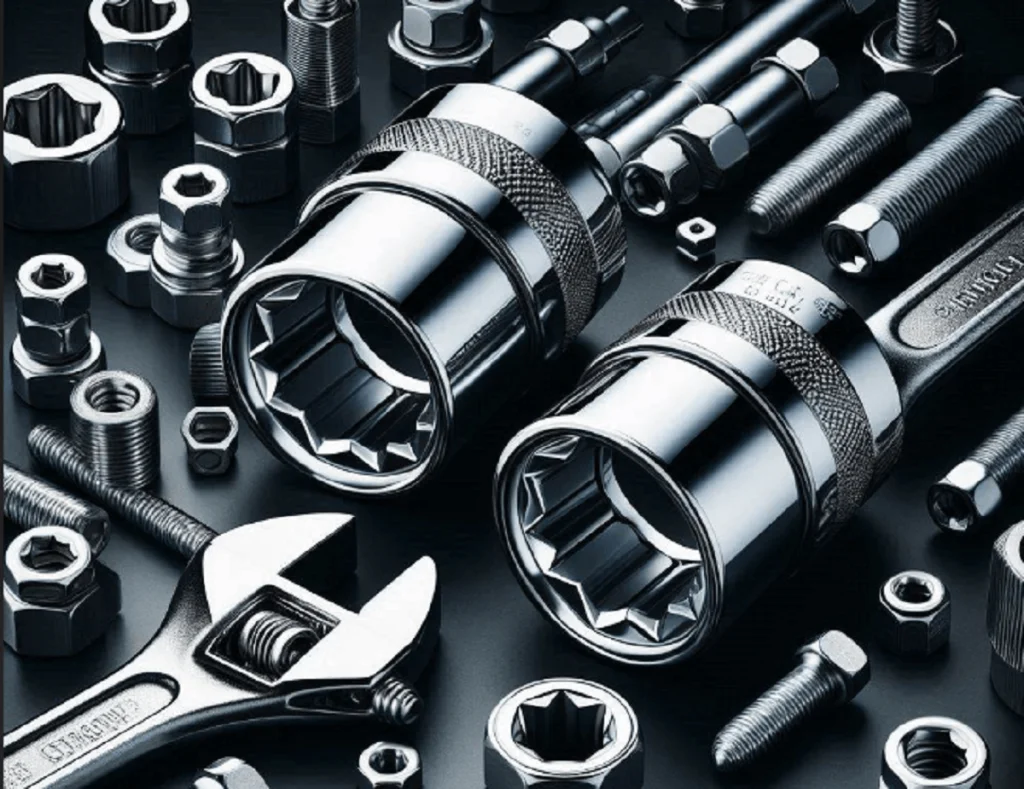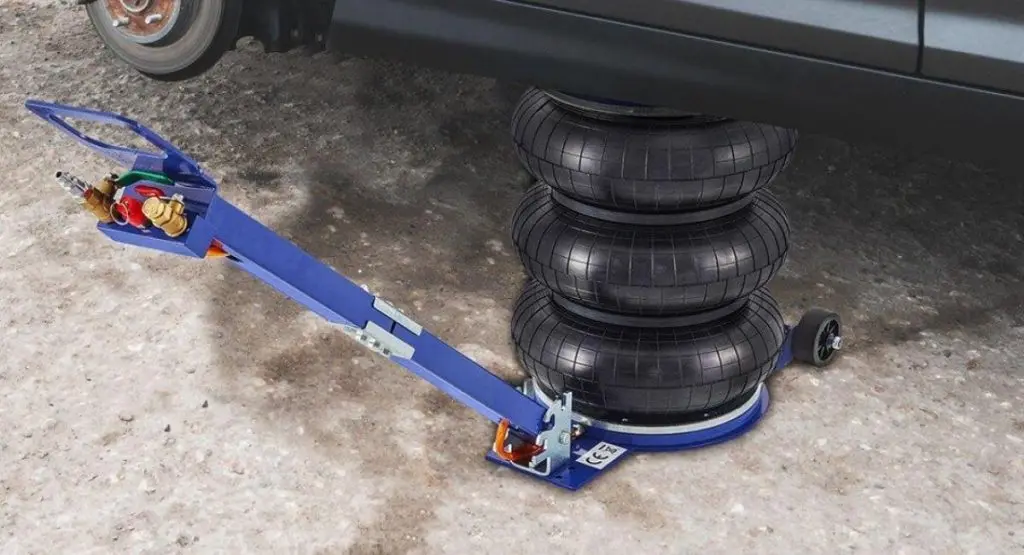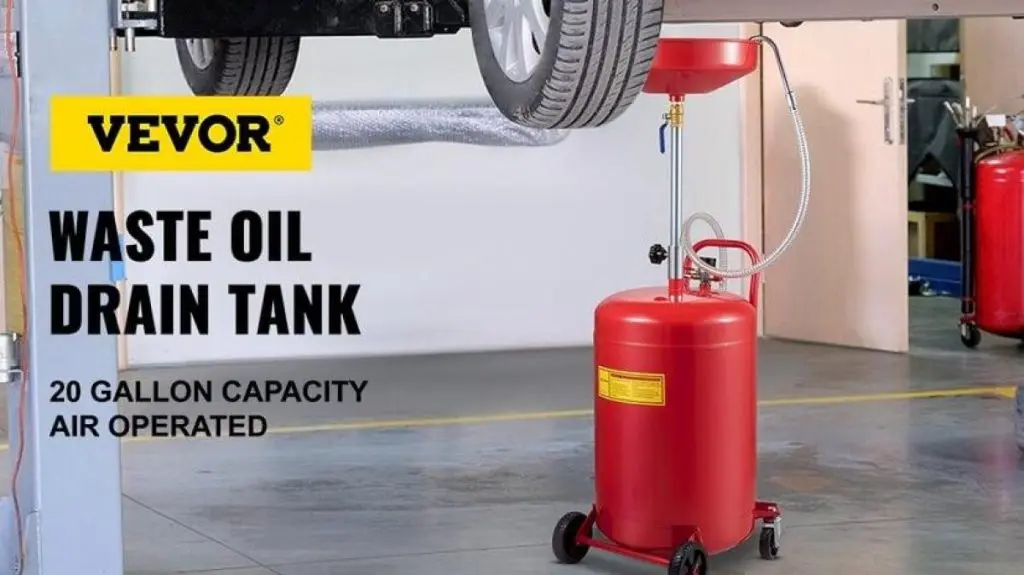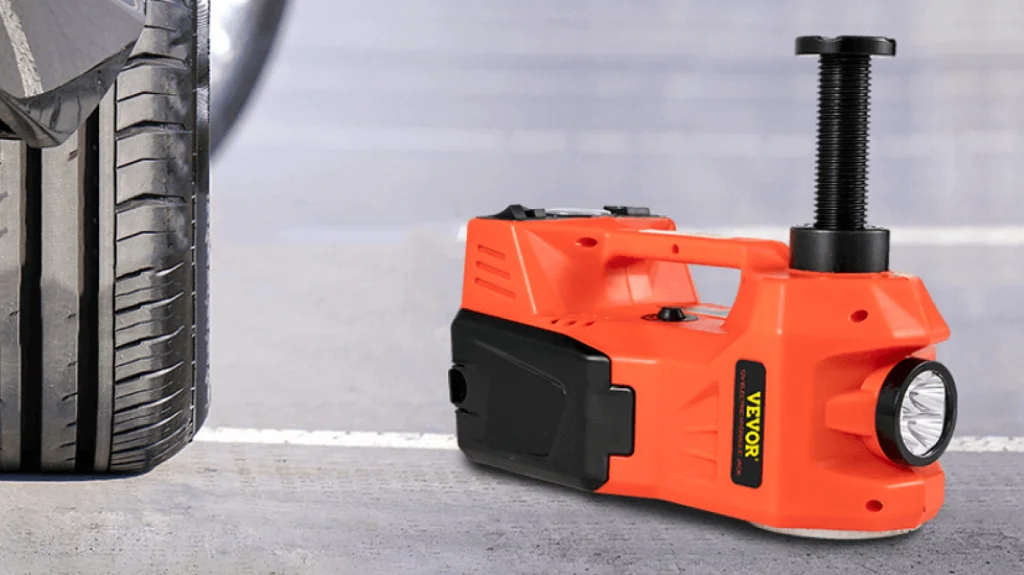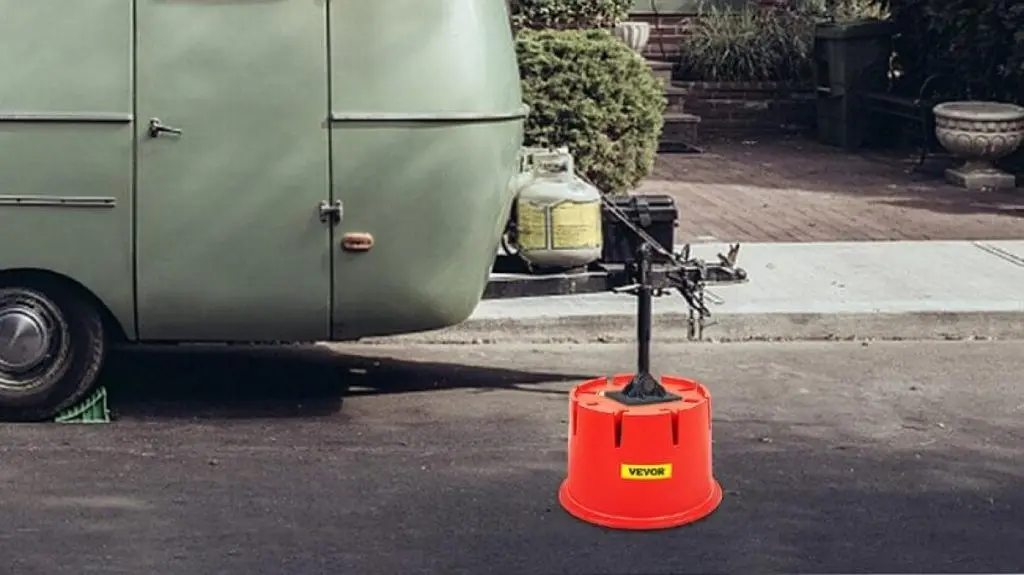When selecting the right socket for your toolkit, understanding the differences between 6-point and 12-point sockets is crucial. Each type has its strengths and is suited for specific tasks; choosing between them is essential for professionals and DIY enthusiasts. Using the correct socket type ensures efficient work and minimizes the risk of damaging fasteners or your tools. In this article, we’ll compare 6-point vs 12-point sockets, exploring their respective advantages and disadvantages so you can decide which is best suited for your needs.
Table of contents
- Understanding the Basics of 6-Point Sockets
- Understanding the Basics of 12-Point Sockets
- Differences Between 6-Point vs 12 Point Sockets
- Advantages and Disadvantages of 6-point socket and 12-point socket
- How to Choose Between 6-Point and 12-Point Sockets
- Why the VEVOR Impact Socket Set is Perfect for You
Understanding the Basics of 6-Point Sockets
A six-point socket has six contact points that match the six sides of a hexagonal fastener. This means it fits snugly and is excellent for jobs needing high torque.
Why Use a 6-Point Socket?
- Grips flat sides of nuts and bolts, reducing the chance of rounding them off.
- Ideal for high-torque applications.
- Excellent for stubborn or heavily rusted fasteners.
You’ll often see 6-point sockets used in:
- Automotive Repair
- Construction
- Industrial maintenance
Understanding the Basics of 12-Point Sockets
A 12-point socket, on the other hand, has twelve contact points. These points form a circular pattern that can engage a fastener’s flat sides and corners.
Why Use a 12-Point Socket?
- Offers more versatility in tight or hard-to-reach spaces.
- Quick to align with the fastener, which is helpful in confined areas.
- Less grip than 6-point sockets and more prone to rounding off edges under high torque.
However, they are perfect for:
- Jobs where speed and quality matter most.
- Situations requiring quick access to fasteners, like assembly lines or repair jobs with limited space.
In short, 6-point sockets are great for high-torque tasks and tough jobs, while 12-point sockets shine when speed and flexibility are needed. Both have strengths and knowing when to use each can make your work easier and more efficient.
Differences Between 6-Point vs 12 Point Sockets
Here’s how 6-point differ from 12-point sockets:
Strength and Durability
When it comes to strength and durability, six-point sockets are usually better for high-torque jobs. The six-point design touches more of the flat sides of a nut or bolt, which means the force is spread out more evenly.
What does this mean for you?
- Less chance of rounding edges: The socket is less likely to slip and damage the fastener.
- Handles high torque better: You can use more force without worrying about the socket failing.
On the other hand, 12-point sockets touch less of the fastener’s surface. This can put more stress on the corners, making them more likely to round off under high torque.
So, for heavy-duty tasks, go with 6-point sockets.
Grip and Contact Surface
The grip and contact surface of sockets differ between 6-point and 12-point designs.
6 Point Sockets
- Strong grip: They have six contact points, which fit snugly on the fastener’s flat surfaces.
- Less slippage: This secure fit helps prevent both socket and fastener damage.
12 Point Sockets
- More versatile: They can grip the fastener’s flat surfaces and corners.
- Better for tight spaces: Their design makes them easier to use in tight or awkward spaces.
- Less secure grip: The contact area per point is smaller, making them less effective at securely holding the fastener, especially under high torque.
Versatility and Applications
When it comes to versatility, 12-point sockets have the edge.
Why?
- Quick engagement: They are quicker to fit onto fasteners, which is useful when speed matters.
- Great for tight spots: They work well in confined or hard-to-reach areas where alignment is tricky.
But, for tasks needing precision and high torque, such as:
- Automotive repairs
- Heavy machinery maintenance
6-point sockets are the way to go. Their firm grip and durability make them perfect for tough or rusted fasteners.
When to Use a 6-Point Socket vs a 12-Point Socket
Ideal Scenarios for Using 6-Point Sockets
6-point sockets are perfect when you need a firm grip and high torque. Here are some situations where they work best:
- Automotive Repairs: When dealing with rusty or tightly torqued bolts, 6-point sockets provide a firm grip, making it easier to loosen or tighten bolts without damaging them.
- Heavy Machinery Maintenance: In industrial settings, where high torque is common, 6-point sockets can handle the stress and remain durable.
- Construction Projects: 6-point sockets are reliable and robust for tasks involving large bolts and nuts.
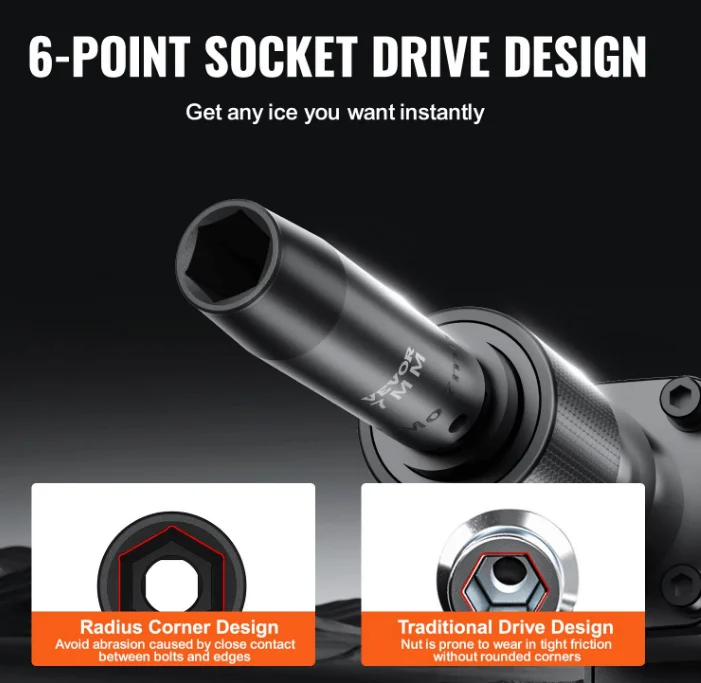
These scenarios show how 6-point sockets distribute torque evenly and reduce the risk of damage to both the socket and the bolt.
Ideal Scenarios for Using 12-Point Sockets
12-point sockets are handy when you need speed and easy access more than high torque. Here are some situations where they excel:
- Assembly Line Work: When you need to engage fasteners quickly and frequently, 12-point sockets make it faster to align and operate.
- Tight Spaces: In confined areas where alignment is challenging, the design of 12-point sockets makes it easier to engage with fasteners.
- General Maintenance: 12-point sockets offer flexibility and ease of use for lighter tasks that require less torque.
These scenarios highlight the versatility of 12-point sockets, which allow quicker and easier engagement with fasteners, especially in tight spaces.
Advantages and Disadvantages of 6-point socket and 12-point socket
Choosing the right socket for your toolset can be confusing. Let’s explain the differences between 6-point and 12-point sockets.
Advantages
| Feature | 6 Point Sockets | 12 Point Sockets |
| Grip | Strong grip on flat surfaces | Quick engagement with fasteners |
| Durability | Built for heavy use | Good for fast-paced tasks |
| Reliability | Ideal for automotive and heavy machinery | Easier to line up, saving time |
| Accessibility | Not as good in tight spaces | Better for confined spaces |
Disadvantages
| Feature | 6 Point Sockets | 12 Point Sockets |
| Access | Tricky in tight spaces | Weaker grip can round off fasteners |
| Speed | Slower to align with fasteners | Might wear out faster |
By understanding these pros and cons, you can make a better choice between 6-point and 12-point sockets based on your specific needs. If you often work on heavy machinery or automotive tasks, you might prefer the strength of 6-point sockets. On the other hand, if you need to work quickly in tight spaces, 12-point sockets could be more suitable.
Recommended For Your Project
How to Choose Between 6-Point and 12-Point Sockets
Choosing the right socket involves considering several factors to ensure you get the best performance for your needs. Follow these steps to make an informed decision:
- Assess the Task Requirements: Determine the type of work you’ll be doing. Due to their superior grip and durability, 6-point sockets are ideal for high-torque applications and heavy-duty tasks. For tasks requiring quick access and quality in tight spaces, 12-point sockets are more suitable.
- Consider Tool Compatibility: Check the socket’s compatibility with your tools. If you’re using high-torque impact wrenches, 6-point sockets are recommended because they can handle the stress. For general maintenance tasks with standard tools, 12-point sockets offer more convenience.
- Evaluate the Work Environment: Consider where you’ll be working. 12-point sockets excel in confined spaces or where rapid fastener engagement is needed. For rugged environments and frequent use, 6-point sockets provide better durability.
- Personal Preference: Reflect on your preferences for grip and ease of use. If you value a secure fit and reduced risk of rounding off fasteners, 6-point sockets are preferable. If quick access and flexibility are more critical, 12-point sockets may be better.
Why the VEVOR Impact Socket Set is Perfect for You
Built to Last
When it comes to tools, durability is key. VEVOR impact sockets are made with high-quality materials like chrome molybdenum (Cr-Mo) steel. This means they are tough and can handle demanding tasks. Whether using a lot of torque or dealing with heavy-duty jobs, these sockets won’t easily break or wear out. Plus, their precise design ensures they stay strong even under intense pressure.
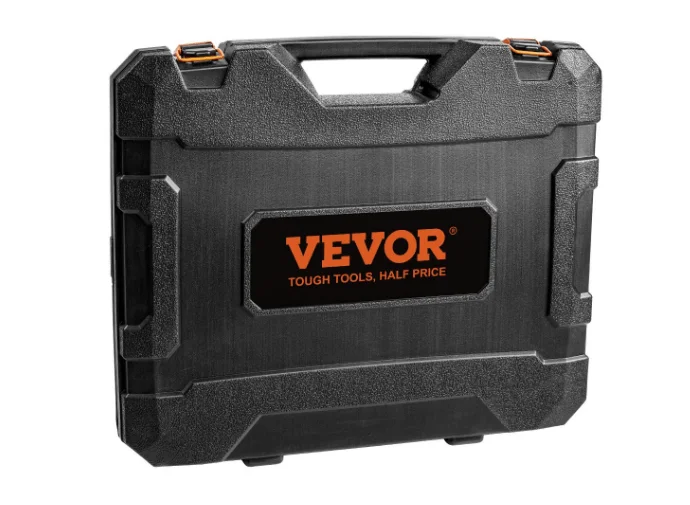
Versatile and Comprehensive
The variety is one of the best things about the VEVOR impact socket set. The set includes many socket sizes to tackle various tasks without a hitch. Do you need a 6-point socket for better grip? They’ve got you covered. Whether you’re a professional or a DIY enthusiast, this set has the right tool for any job. The combination of quality and variety makes VEVOR a go-to choice for reliable and adaptable tools.
Key Features:
High-Quality Construction
- Made from durable chrome molybdenum (Cr-Mo) steel
- Built to handle high-torque and heavy-duty tasks
Versatility and Range
- Includes various socket sizes for different needs
- Ideal for both pros and DIYers
In a Nutshell
In choosing between 6-point and 12-point sockets, understanding their unique strengths and applications is crucial. 6-point sockets excel in high-torque situations, offering superior grip and durability, making them ideal for heavy-duty tasks. Conversely, 12-point sockets provide versatility and ease of use in tight spaces, though they may need to handle high torque more effectively. Selecting the right socket type for your needs ensures efficient and safe work. For a reliable and high-quality option, consider VEVOR impact socket sets. With our durable construction and versatile range, VEVOR sockets are well-suited to meet various demands, providing excellent value and performance.

